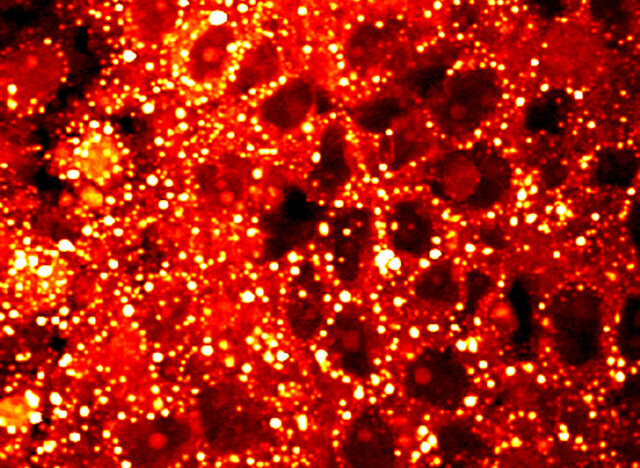
The American Association of Clinical Urologists (AACU) has issued a position statement encouraging the use of tissue-based molecular testing and/or germline testing for three groups of prostate cancer patients.
The Association, which represents nearly 4,000 member urologists nationwide, said in the one-page statement that tissue-based molecular testing “should be considered” as a component of risk stratification in prostate cancer treatment decision making for men with low and favorable intermediate risk prostate cancer, based on a life expectancy of ≥ 10 years.
However, the AACU cautioned that: “While the available prostate cancer tissue-based molecular tests have robust retrospective scientific and clinical validity, they should be incorporated with other measures of prostate cancer risk including prostate-specific antigen, Gleason grade and clinical stage.”
AACU said germline testing “should be considered” in men with very-low risk, low risk, favorable and unfavorable intermediate risk prostate cancer and strong family history of the disease.
The Association defined “strong family history” as consisting of:
- A brother or father or multiple family members diagnosed with prostate cancer at less than 60 years of age;
- Known germline DNA repair gene abnormalities, especially BRCA2 mutation or Lynch syndrome (germline mutations in MLH1, MSH2, MSH6, or PMS2); and/or
- More than one relative with breast, ovarian, or pancreatic cancer (suggesting the possibility of BRCA2mutation); or with colorectal, endometrial, gastric, ovarian, pancreatic, small bowel, urothelial, kidney, or bile duct cancer (suggesting the possibility of Lynch syndrome).
Germline testing, the Association added, should also be considered irrespective of family history in men with high-risk, very-high risk, regional or metastatic disease.
“There is an urgency to incorporating newly available laboratory tools into the evaluation and management of prostate cancer to promote the accurate selection of men for active surveillance and to identify those who may be better served with multimodal treatment rather than monotherapy,” the AACU stated. “Better patient selection for active surveillance will reduce the burden of over-treatment of indolent disease.”
The AACU also said it strongly encouraged the taking of family cancer histories and pursuit of germline testing “where appropriate” to provide patients and their families with clarity about their hereditary cancer risk.
“it is incumbent on urologists to obtain detailed family cancer histories and to consider hereditary genetic testing when family history patterns suggest risk,” the AACU added.
According to the Association, only 15% of BRCA mutation carriers in the U.S. are known. Identifying a man with a BRCA mutation, the AACU asserted, may inform his risk of developing prostate cancer, the clinical course of his diagnosed prostate cancer, his prostate cancer's response to certain therapies, and his family members' risk of developing certain cancers.
The AACU also voiced support for ongoing research “to further refine the prognostic power of these tests.”
Mark T. Edney, M.D., MBA, chair, State Advocacy Network at the AACU, stated that the position statement “sends a message to policy makers, researchers, payers and patients and their families that we are committed to applying the best available science to the detection, risk stratification and appropriate treatment of prostate cancer.”
“Further, our organizations seek to assist in finding the families who reside in our communities who may be harboring crucial and unknown hereditary genes that may affect their cancer risk, that of their relatives, and of future generations,” Dr. Edney added.
Founded in 1968, the AACU’s mission centers on “developing and advancing health policy education as it affects urologic practice.”
The AACU’s statement has won support from the Large Urology Group Practice Association (LUGPA), which represents more than 2,300 physicians who make up more than 25% of the nation’s practicing urologists. The statement also aligns with recent National Comprehensive Cancer Network (NCCN) guidelines supporting biomarker-based testing in prostate cancer.
“With recent endorsements from NCCN, AACU, and LUGPA, Prolaris and myRisk Hereditary Cancer testing should now be considered standard-of-care tests to help guide key decision making for prostate cancer patients,” Nicole Lambert, general manager, Urology at Myriad Genetics, said today in a company statement. “We are highly optimistic that these broadly supported recommendations will lead to expanded reimbursement coverage and improved patient access to these important tests.”
Prolaris is Myriad’s prognostic test designed to directly measure tumor cell growth characteristics for stratifying the risk of disease progression in prostate cancer patients, providing a 10-year prostate cancer-specific mortality risk. The 46-gene expression signature includes cell cycle progression genes selected based upon correlation with prostate tumor cell proliferation: Low gene expression is associated with a low risk of disease progression, while high gene expression associated with disease progression.
myRisk® Hereditary Cancer test is a 28-gene panel designed to identify an elevated risk for prostate cancer and seven additional hereditary cancers: Breast, colorectal, endometrial, gastric, melanoma, ovarian, and pancreatic. The test includes nine genes associated with prostate cancer risk: BRCA1, BRCA2, MLH1, MSH2, MSH6, PMS2, EPCAM, TP53, and NBN.






![AI Algorithm Could Reduce Breast Cancer Mammogram False Positive Rate The primary goal of the Paradigm Registry is to accelerate tumor profiling based on disease biology. [iStock/LilliDay]](https://www.insideprecisionmedicine.com/wp-content/uploads/2019/01/307-218x150.jpeg)




